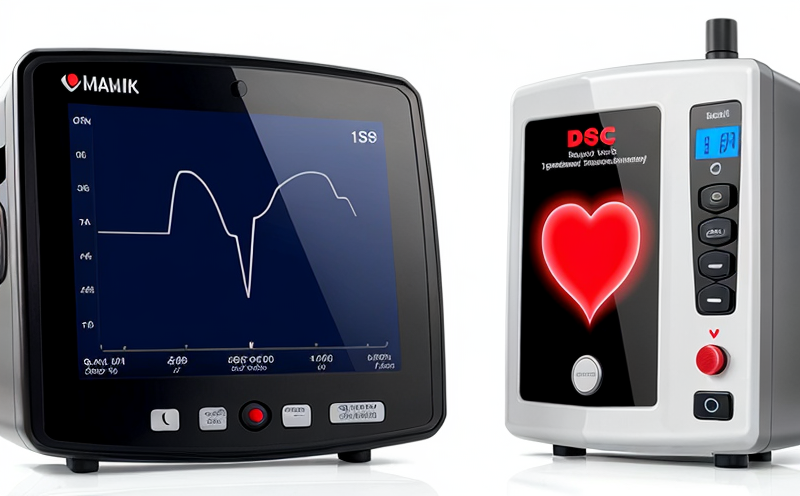ISO 7198 Vascular Prosthesis Biocompatibility Testing
The ISO 7198 standard is a crucial guideline for ensuring the safety and efficacy of vascular prostheses used in medical procedures. This testing ensures that devices do not cause adverse reactions when implanted into the human body, thus protecting patient health and wellbeing.
Vascular prostheses are critical components in modern medicine, particularly in cardiovascular interventions like angioplasty or stent placement. These devices must be biocompatible to avoid inflammatory responses, thrombosis, or other harmful interactions with bodily tissues. The testing outlined by ISO 7198 focuses on several key aspects of biocompatibility:
- Material compatibility: Ensuring that the materials used in the prosthesis do not react adversely with body fluids.
- Inflammatory response: Evaluating whether the device induces an excessive inflammatory reaction when implanted.
- Thrombogenicity: Assessing the likelihood of thrombus formation around or within the vascular prosthesis, which can lead to serious complications such as strokes or heart attacks.
The testing process involves multiple steps designed to mimic real-world conditions and assess biocompatibility comprehensively. Specimens are subjected to various tests under controlled conditions that replicate physiological environments. These include:
- Exposure to blood samples: Simulates the interaction of the prosthesis with blood.
- Incubation periods: Allow time for biological responses to develop fully, which helps in detecting any long-term adverse effects.
- Microscopy and histology: Visual inspection of tissue sections around the implanted device using high-resolution imaging techniques.
The results of these tests are evaluated against stringent criteria specified in ISO 7198 to determine biocompatibility. Compliance with this standard is essential for regulatory approval, ensuring that products meet international safety and performance requirements before being introduced into the market.
Our laboratory specializes in providing comprehensive testing services tailored to meet the rigorous demands of ISO 7198. Our team of experts employs advanced instrumentation and methodologies to ensure accurate and reliable test results. By partnering with us, you can trust that your vascular prostheses undergo thorough evaluation, reducing risks associated with potential biocompatibility issues.
Understanding the importance of this testing is critical for quality managers, compliance officers, R&D engineers, and procurement teams involved in medical device development. Investing time and resources into ensuring biocompatibility not only meets regulatory requirements but also enhances patient safety and satisfaction.
Applied Standards
The ISO 7198 standard is one of several internationally recognized guidelines that govern the testing procedures for vascular prostheses. By adhering to these standards, manufacturers and developers can ensure their products meet stringent quality controls and regulatory expectations.
- ISO 7198-1: General requirements for biocompatibility assessment of medical devices intended for implantation in the cardiovascular system.
- ASTM F2046: Standard practice for testing vascular prostheses for thrombogenicity using whole blood.
- EN ISO 10993-18:2017: Biological evaluation of medical devices—Particular aspects related to the cardiovascular system.
The combination of these standards provides a robust framework for assessing biocompatibility, ensuring that all elements are considered comprehensively. Compliance with these guidelines enhances credibility and trustworthiness in the medical device industry.
Quality and Reliability Assurance
- Consistent Test Results: Our laboratory consistently produces accurate and reliable test results. This is achieved through meticulous specimen preparation, adherence to standardized protocols, and the use of cutting-edge equipment.
- Inter-laboratory Comparability: By aligning with international standards like ISO 7198, we ensure that our results are comparable across different laboratories worldwide.
The quality control measures in place at our laboratory are designed to minimize variability and error. We employ rigorous calibration procedures for all instruments used in testing, ensuring precision and accuracy throughout the process.
Customer Impact and Satisfaction
- Enhanced Patient Safety: By providing biocompatibility tests that meet international standards, we contribute to safer medical devices. This directly impacts patient health outcomes positively.
- Regulatory Compliance: Our services help clients ensure compliance with regulatory bodies worldwide, reducing the risk of non-compliance penalties and enhancing reputation.
Our commitment to quality and reliability is reflected in the high level of customer satisfaction. Clients benefit from transparent communication regarding test results and recommendations, which aids in informed decision-making during product development and commercialization phases.





